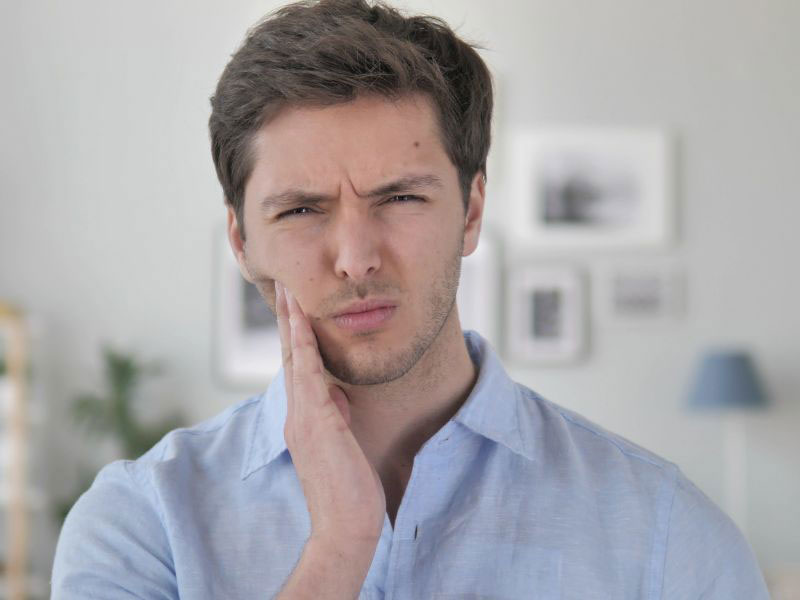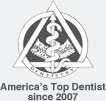TMJ Treatment in Bellevue, WA

Do you ever experience pain in your jaw, the muscles on the side of your face, or in the area near your ears? Do you ever hear a pop or click when chewing, yawning, or opening and closing your mouth in general? Many people experience these symptoms and don’t think much of them, but they may be suffering from a Temporomandibular disorder, otherwise known as TMD. TMD can be a pretty serious issue, potentially causing permanent damage to your jaw. Let’s take a closer look at what TMD is and what getting treatment may entail.
What is Temporomandibular Disorder (TMD)?
According to the National Institute of Dental and Craniofacial Research, TMD is classified by the following:
Myofascial pain: This is the most common form of TMD. It results in discomfort or pain in the fascia (connective tissue covering the muscles) and muscles that control jaw, neck, and shoulder function.
Internal derangement of the joint: This means a dislocated jaw or displaced disk, (cushion of cartilage between the head of the jaw bone and the skull), or injury to the condyle (the rounded end of the jawbone that articulates with the temporal skull bone).
Degenerative joint disease: This includes osteoarthritis or rheumatoid arthritis in the jaw joint.
TMJ vs. TMD - What’s the Difference?
As we mentioned, TMD stands for Temporomandibular Disorder. TMJ on the other hand stands for Temporomandibular joint, which we have two of, one on the right side of our face and the other on the left. The temporomandibular joints are incredibly complex and are responsible for the ability to open and close the mouth. They connect the lower part of your jaw, which is called the mandible, to the sides of your skull, called the temporal bone. TMJ refers to the actual joints but is often used interchangeably with TMD as problems with the temporomandibular joint are what results in temporomandibular disorders. Confused yet? For the sake of clarity, we’ll refer to this issue as TMD, with TMJ solely referring to the joint itself.
What is the Cause of Temporomandibular Disorders?
Unfortunately, determining the exact cause of an individual’s TMD is often quite difficult, but there are many factors that may have an impact on it like genetics, gender, arthritis, or other jaw injuries. At Washington State Prosthodontics and Dental Implant Center, many of our patients say they started experiencing symptoms with no apparent reason. TMDs do happen to be more common in women than they are in men, so many researchers are looking into whether the structure of the TMJ varies in women versus men and if that may play a role in the cause. One thing we can state as a research-based fact is that TMDs are not caused by orthodontic braces or having a ‘bad bite’ (National Institute of Dental and Craniofacial Research, 2023).
How Do I Know If I Have TMD?
There are many symptoms that come along with temporomandibular disorders, and those suffering from a TMD may experience one or more of the following symptoms:
- Feeling pain or soreness in the jaw.
- Pain in the temporomandibular joint (or joints).
- A feeling of achiness in the face.
- A clicking or popping noise when opening and closing your mouth.
- Experiencing pain while chewing.
- Difficulty chewing or opening and closing the mouth.
- Experiencing muscle pain around your cheeks and temples.
- Stiffness or locking of the jaw.
- Misalignment or a change in how your upper and lower teeth fit together.
- Unexplained ringing in the ears, slight hearing loss, or pressure in the ears.
- Dizziness or problems with your vision.
- Chronic headaches.
It’s important to remember that having one or two of these symptoms on occasion does not necessarily mean you have TMD, but when the symptoms appear to be persistent, there may be cause for concern. If you think you may have a TMD or issues in general with your TMJ, it’s important to schedule an appointment with your dentist to have a closer look. Since the cause of TMDs is unknown, at the appointment your dentist will not only note all of your symptoms and medical history, but they will also ask very specific questions about your symptoms and pain. You may need an examination of the neck, face, head, and/or jaw, or even an MRI or CT scan to help diagnose the TMD.
How are TMJ Problems Treated?
When treating TMDs, we always recommend the most cautious and conservative options, this is because we do not want to involve surgery or intrude on the tissues of the jaw, joint, or face in a way that may be irreversible. This is because treatments that result in permanent changes are not always successful in guaranteeing the improvement of symptoms. Instead of aggressive treatment options, we typically focus on relieving the symptoms associated with TMD. There are several things you can try that might help with TMD symptoms:
- Eating softer foods and allowing the jaw as much rest as possible.
- Avoid extreme jaw movements such as chewing gum, yawning, singing, or yelling loudly.
- Apply a moist, warm compress. - Exercises to strengthen your jaw muscles.
- Medications such as muscle relaxants, pain medicine, anti-anxiety drugs, or anti-inflammatory medications.
- Wearing a nightguard or bite plate to decrease clenching or grinding of teeth during sleep.
If your dentist is unable to help soothe your symptoms, it’s also common to be referred to a specialist. If this is the case for you, we always advise our patients to use us as a resource to be well informed before making permanent adjustments, or the proper questions to ask the specialist including asking the success rates for the procedure you are considering and what the potential outcomes may be (National Institute of Health, 2023).
Treating TMJ Pain at Your Bellevue Prosthodontist
Dr. Russell Johnson and Dr. Michael Johnson are two of only a few board-certified prosthodontists in the state of Washington and are highly trained to be capable of addressing and treating our patients’ most complex dental needs, including TMJ pain and TMDs. If you’re struggling with TMJ problems, give us a call at (425)549-4649 or schedule an appointment today. Our team is here to help you with your TMJ concerns, diagnose TMDs, and treat your pain so you can go on living your day-to-day life without the burden of chronic pain.

 (425) 549-4649
(425) 549-4649









